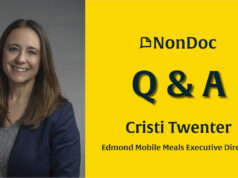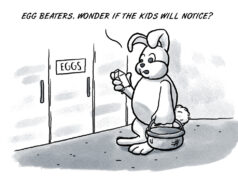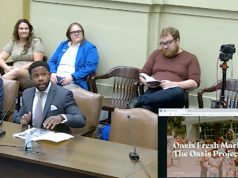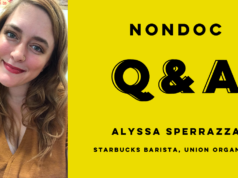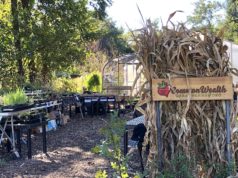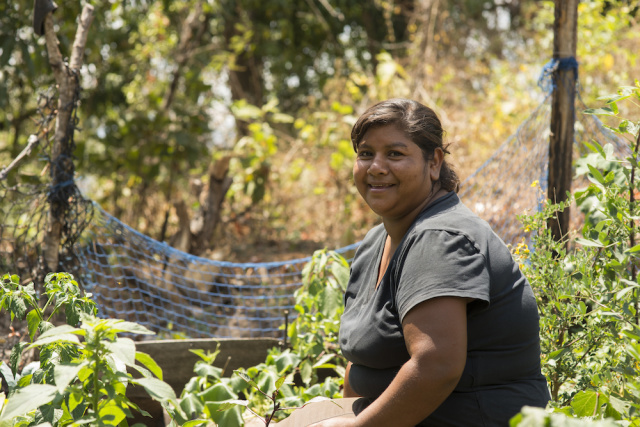

SHAWNEE — As a 20-year-old in 1980, Rachel Zelon enlisted in the Peace Corps and was sent to a small village absent from any map. She waited by the side of the road with a duffel bag until a truck approached, kicking up dust. Mostly women and children hopped out of the truck to greet Zelon, the kids touching her hair.
“I’m like, ‘OK, I can do this,'” she said. “‘This is a little weird but I can do it.’”
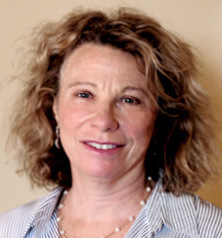
She ended up walking to the village as a guide carried her bag. Bamboo huts without running water or electricity typified conditions in this village and others around Ecuador.
Fast-forward to today: Zelon runs Hunger Relief International, a non-profit, from her home in Shawnee. Comparatively small, HRI serves the needs of small villages in Haiti and Guatemala. The organization provides mentorship — such as gardening instruction — and resources, like safer stoves.
Guatemala
Make no mistake: Zelon doesn’t globe trot between her Oklahoma headquarters and Guatemala all the time. She explained that, to gain the trust of the local population, it’s best to do it with local faces. In Guatemala, HRI partners with a group called Byoearth on sustainable garden projects.
Byoearth, with technical resources and funds from HRI, works in two villages to cultivate gardens for individual households. About 45 families are involved.
“Growing organic is not easy,” said Byoearth founder and native Guatemalan Maria Rodriguez, whose parents were coffee producers. “So we have to make sure that if a bug eats all of the produce at night, the families of women learn from the process rather than being disheartened.”
Rodriguez said the communities would be almost forgotten if it wasn’t for HRI. She said tackling malnutrition on multiple levels (gardens, schools, mothers) has never been done there — especially with violence and social problems in the region.
The community has an eventual goal of creating a commercial garden that would make the homes more self-sufficient, but, in year one, the process focuses mainly on education, from workshops on the benefits of lemongrass to the disappointing hands-on lessons of planting in poor soil.
In myriad situations, Zelon has had to switch strategies on the fly. She does so by boiling problems down to their basics.
For example, in the case of respiratory infections in Guatemala, Zelon found many were tied to the local custom of cooking inside homes with wood burning stoves. She collaborated with an engineer to find a new design: a stove built from a cement block, bricks and sand. Because it uses a combustion chamber, it doesn’t require as much wood to burn, and a chimney takes the smoke out of the house. In July 2014, a medical team reported there had been only two respiratory infections as opposed to more than 100 the year before, Zelon said.
Still, some problems require outside assistance. To improve clean-water access in Guatemala, Zelon reached out to OSU professor and Engineers Without Borders head Greg Wilbur. Likewise, to find a design for a new latrine in instances where villagers use ditches, she’ll partner with a group like Cobb Engineering to test out a latrine.
The power of food
Malnutrition has its roots in poverty. That’s why HRI’s hunger and nutrition program includes a school-aged feeding component, important because of the essential demands that a child be nourished in its first 1,000 days. For Zelon, planning always returns to nutrition.
“So we try to say, ‘Alright, let’s get them what they need at this critical stage to the degree that we, as a small organization, can,’” she said. “Let’s make sure they go to school. So we provide the school feeding programs, which are huge magnets for the kids and the parents. [The parents say] ‘Oh wow, I don’t have to worry about a meal and a half for my child. All my kids [will] go to school.’ The girls get to go to school. Now you can begin to have an impact.”
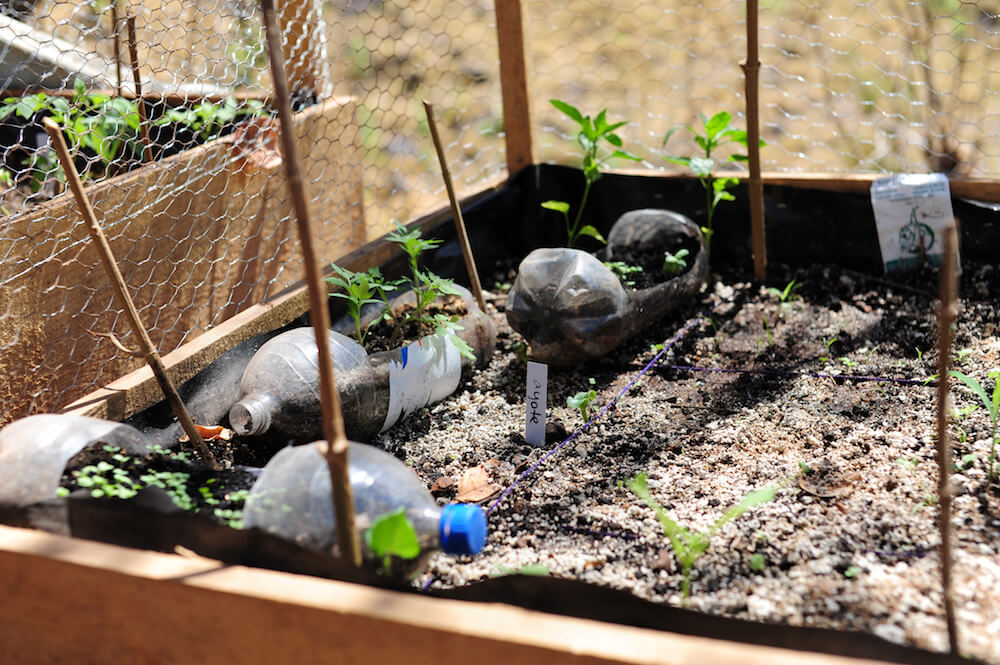
Once, in northern Kenya when Zelon worked for OKC-based Feed the Children, she attended a meeting of different aid administrators where a rep from the World Health Organization was upset at the hospital for its lack of resources and vehicles to help distribute vaccinations to children (there was a polio epidemic at the time).
Zelon noticed that a food distribution was scheduled soon, so she suggested he round up some nurses who could administer vaccinations. When a member of another organization protested the lack of proper protocol, noting the kids were supposed to be weighed and measured before being vaccinated, Zelon insisted it was an emergency. In her regularly scheduled feeding line, 3,000 kids were also vaccinated that day.
“Parents were jumping up and down. Why? Because we can use food as an incredibly powerful tool in a good way,” she said. “So when we do school feeding programs, what we do is, we’re using something extremely powerful — which is food and nutrition — to help the parents understand and trust us. And so they partner with us.”
Work with other nonprofits
While with Feed the Children, Zelon also worked in Haiti after the 2010 quake. She has shepherded refugees, and, in Iraq, the aged. She says she has seen mothers walk for days in drought-stricken countries because they know there is food for their child (and maybe themselves) at the end of the five-day walk.
To support orphanage food stables in Haiti, she now has HRI buy directly from farmers because, after the 2010 earthquake, local farmers couldn’t sell their rice; everyone else in the world was sending Haiti food. She viewed the hard time they had as a paradox.
These memories mingle with early teachings of a community-development trainer who said the key is getting people to trust you. Zelon said she learned food could be used for good or evil, and, in the case of the good, it establishes a trust.
Zelo has also worked the Hebrew Immigrant Aid Society. Through HIAS, Zelon also oversaw the crossing of refugees from Columbia into Ecuador. There was violence amongst guerillas and paramilitary groups spurned by political disputes on the pay of underrepresented campesinos. The situation devolved into drug trafficking and chaos eventually (kidnappings, gunfights) where there were “people running for their lives, literally,” Zelon said.
She was part of a refugee program focused on psycho-social support for the refugees. Parts of Zelon’s cultural inheritance gave her equipment for this kind of aid.
“My belief is that as a Jewish community that had survived the Holocaust and had really come a long way, we also had the professional capacity from within to deal with issues of displacement and that we had very good people that could do that,” Zelon said. “We started working with psychologists that could work with the women and children who had fled for their lives.”
Zelon says the main conflict of most refugee debates is whether refugees will be resettled in their native region or whether resettlement is the responsibility of wealthier nations. In today’s climate, a justifiable fear, given that recent events in San Bernadino, Calif., has aggravated the debate. Politicians angling for a clear position have taken over a debate that Zelon said would best be had rationally, in schools, churches, public forums — rather than a one-dimensional mass-media blast.
While speaking from neither side of the debate, Zelon noted we might ask ourselves if the refugees would really prefer fleeing their homes in a situation of “indescribable horror” only to beg for asylum elsewhere. She also points to success had in the U.S. by emigres of the former Soviet Union and Vietnam.
Meanwhile, an ancient riddle of trial and suffering remains unsolved, she said. The perennial problem of poverty in the developing world is one so large and diffuse it could paralyze a potential community developer.
“Human suffering is not something to be feared,” Zelon said, “but something that we need to look at, understand, and figure out together what role, if any, we want to take in helping to address some of that suffering.”
(Correction: This story has been updated from an earlier version to clarify Zelon’s work with the Hebrew Immigrant Aid Society.)









